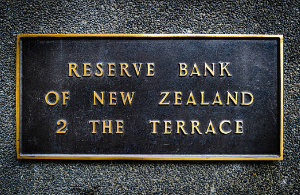
While the OCR remained unchanged at 1.75%, with longer term inflation projected to reach the middle of range (2%), RBNZ’s GDP predictions are causing some economists to scratch their heads.
Dominick Stephens, chief economist at Westpac, says the forecasted GDP of 1.2% by March 18 is quixotic.
“It’s quite extraordinarily optimistic, to the point of being unrealistic”.
He says that given the weakening housing market, lowering of business confidence, construction stalling and electronic card transactions flat, it’s highly improbable that RBNZ’s predicted GDP will be realised.
“With the uncertainty associated with a change of Government lying ahead of us, population growth slowing sharply, and the reality of a slow housing market sinking in, we find it highly unlikely that the economy will reach these heights,” says Stephens.
“The RBNZ will have to change their tune next year.”
BNZ Senior Economist Doug Steel was more tempered in his assessment of the MPS.
“There weren’t a lot of surprises, and there was a lot ground covered,” he says.
He continues by saying that the economic outlook was rather more positive than might have been expected, and noted the likelihood of interest rates being lifted at some stage in the not-to-distant future.
Peter Cavanagh from Bancorp agrees that the inflation and fiscal assessments were more upbeat than many expected, with a higher predicted net inflation track to the lower New Zealand dollar.
Meanwhile, Zoe Wallis, Chief Economist at Kiwibank, says the MPS was largely in line with their expectations
“Although RBNZ is pulling forward the expected timing of rate hikes in its forecasts slightly,” she continues.
She says that they see some risk to the RBNZ's non-tradables inflation forecasts, but still expect the RBNZ will have to start lifting the OCR from the end of 2018.
Christine Leung, Principal Economist from NZIER, also says the announcement was pretty much business as usual.
“Given so much uncertainty over the effects the Government policies a wait-and-see approach was prudent. Overall, the net effect of the new Government policies are likely to be inflationary - the reduced labour supply from the immigration cuts will likely put upward pressure on wages, while increased Government spending will boost demand.”



Comments
No comments yet.
Sign In to add your comment